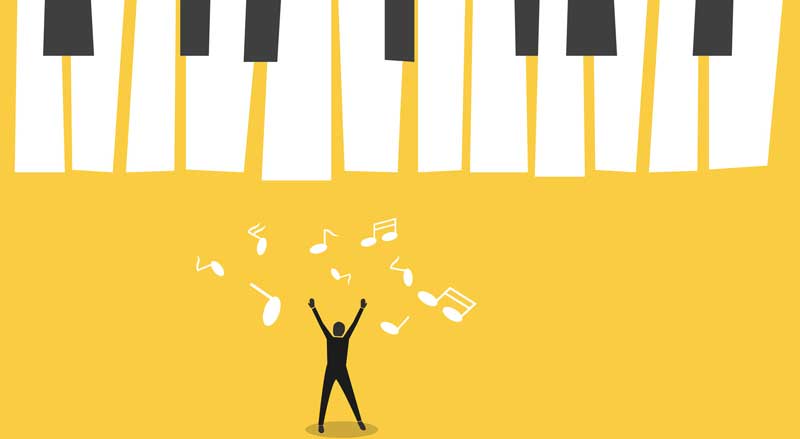
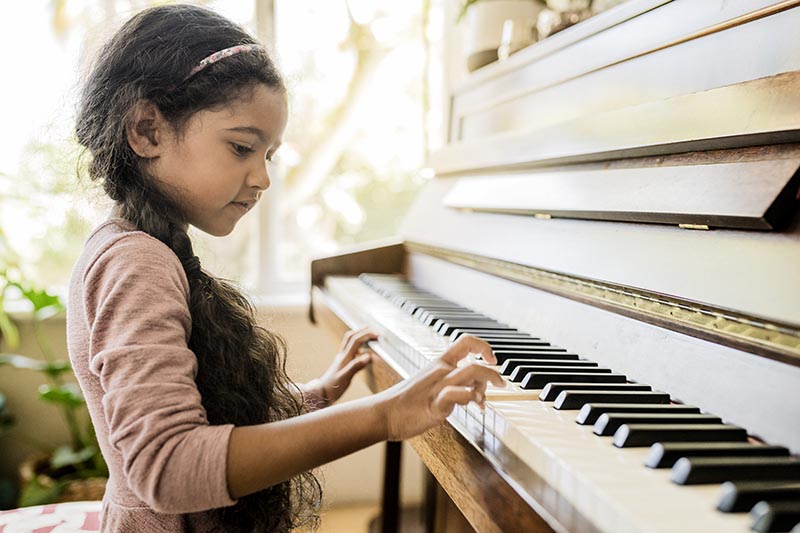
Are there benefits children receive from piano lessons? Without a doubt! They range from improved concentration and memory skills to better self-confidence and hand-eye coordination. And children learn a skill that brings joy to themselves and others! The logical next question is, when is the best age for my child to begin piano lessons?
The answer is—it’s pretty much up to your child.
Of course, your child can’t give you a direct answer to this question. But they will show signs they are ready to take piano lessons.
Here’s how you will know your child is ready to begin piano lessons.
Your child needs to know how to count to five to learn rhythm and time.
Knowing the alphabet is also important and basic reading skills are a big plus. Your child needs to know how to identify symbols on sheet music.
Many parents of young kids have heard this phrase jokingly said to young children who are learning a skill when using the wrong hand or foot. Often children will confuse their left and their right, but it doesn’t mean they don’t know the difference.
However, your child needs to know the difference between left and right to learn how to play the piano. Piano playing involves specific use of left and right hands.
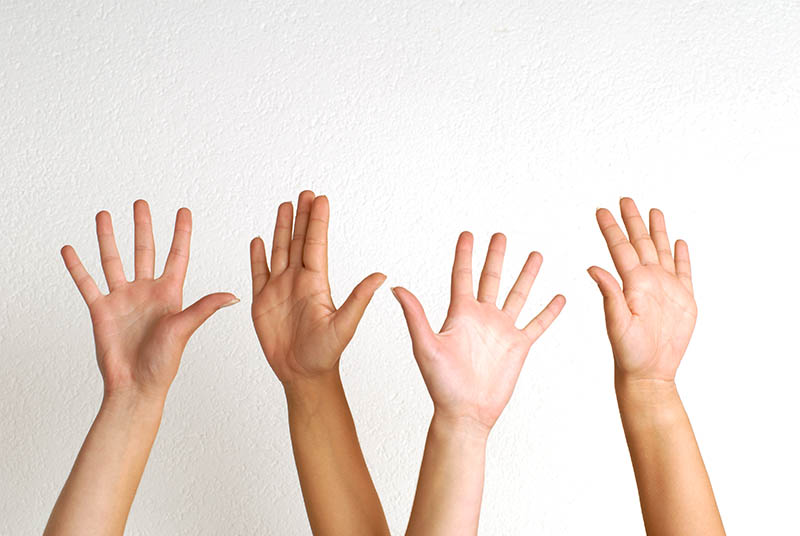
Your child needs to have basic motor skills. Little fingers strike keys and reach over keys to create sounds. This calls for basic motor skills. Piano playing also helps improve these skills. Students develop greater self-confidence as they progress.
A child’s hand size is also a factor in determining their readiness to start piano lessons. If hands are too small, and they cannot touch 5 adjacent white keys at the same time, it’s best to wait until this is possible.
It’s also important that the child has sufficient dexterity in their hands. Each finger needs to work separately and move individually.
Kids usually need an attention span of 30 minutes to successfully start piano lessons. Instructors will divide lessons into smaller sections so younger children maintain focus from section to section.
Think about your child at play. Do they get engrossed and play with one toy for a half-hour, or sit down and draw for a long time? This means that your child can focus for an extended time and will benefit from piano lessons.
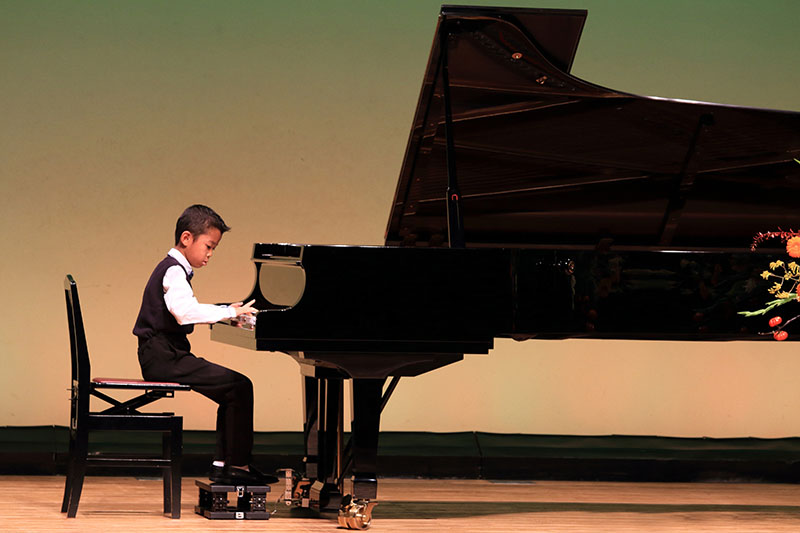
There’s a long-standing joke about a NYC tourist who’s going to a concert but gets lost. He stops a New Yorker, who’d carrying a violin case, and asks:
How do you get to Carnegie Hall?
The musician answers: Practice!
While your child may not have much interest in becoming a world-famous pianist, they still need to practice. Ideally, a child should practice the piano every day. This will help them remember what they learned in their lesson and improve their skills. In the early stages of piano lessons, it can be helpful, particularly for younger children to break up their practice time into 10 or 15 minute intervals.
If they don’t spend time in review, and working at their keyboard skills, they won’t show improvement from lesson to lesson and will probably become unhappy, bored and frustrated.
When a child is motivated by interest, they will most likely progress faster and further. They will focus better during lessons and will want to practice more.
If your child has expressed interest in learning the piano, it’s an important indicator that they will benefit from piano lessons. They are also more likely to follow their instructor’s instructions.
Following instructions also calls for a certain level of maturity.
Many people feel that age 5 or 6 is the time when a child can start piano lessons. Depending on your child’s maturity and other factors, you may choose to wait longer.
Some children can start lessons earlier. And sometimes it’s wise to wait a bit longer. But if you pay attention to the cues we’ve spelled out, you will have a good indication of whether your child is ready.
As a parent, you know every child is different. Clearly, you know your child best. And it’s never too late to start lessons either. In any event, we want your child’s piano lesson experience to be fun and successful.
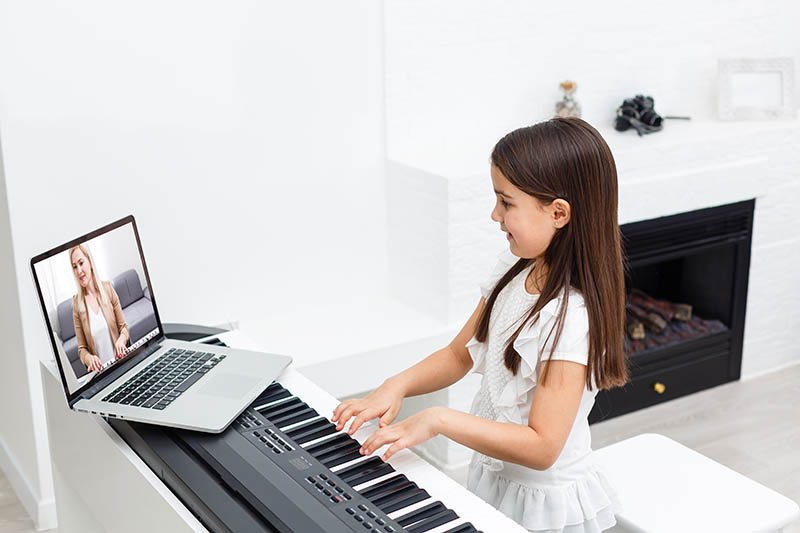
At B Natural Pianos & Music School we are excited to offer online music lessons for interested students. This way, you can have remote music lessons in the privacy of your home.
Of course, private lessons at our studios in Rockaway, NJ are always available.
Our teachers are certified professional music educators. They are well-trained in their craft at the conservatory and university level, with experience teaching various age groups.
If you are interested in online music lessons, call the B Natural Pianos Music School at 973-983-8800.